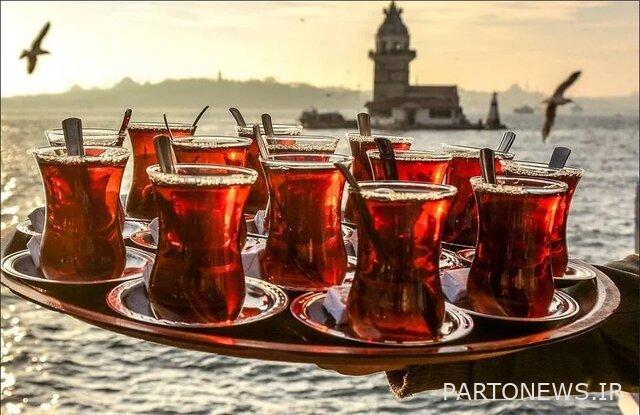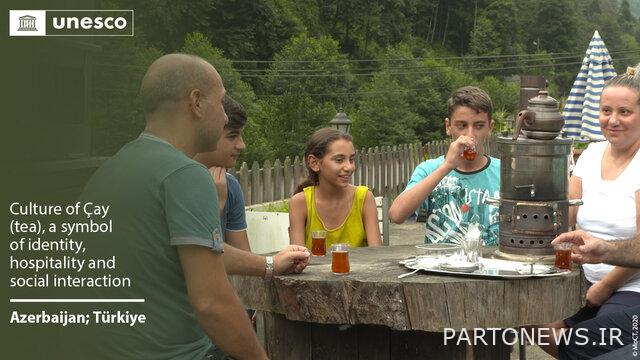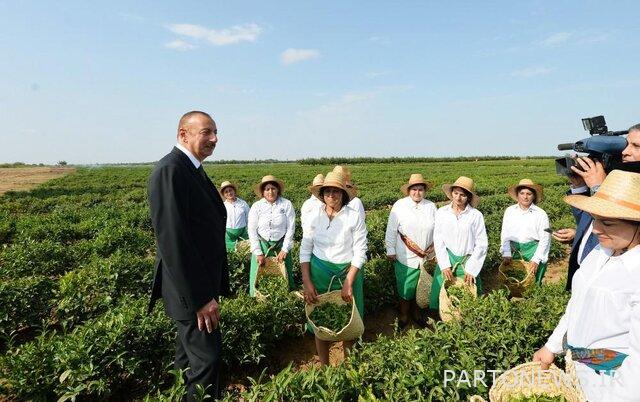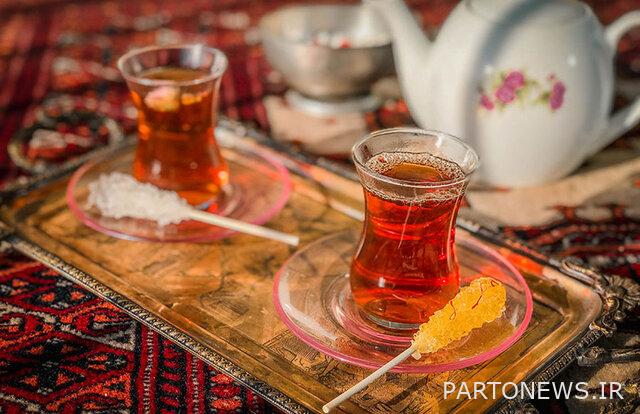Is Iran left out of the “tea party” caravan of Azerbaijan and Turkey?

While the Republic of Azerbaijan and Turkey have registered “Tea Culture” in their names in UNESCO, the deputy of cultural heritage not only believes that such heritage will not be monopolized and taken over, but also informed of Iran’s will to register “Tea” in UNESCO. Gives.
Turkey and the Republic of Azerbaijan jointly registered “tea culture” as a “symbol of identity, hospitality and social interaction” in the 17th International Committee for the Safeguarding of UNESCO’s Intangible Heritage, while in the same meeting, China in a separate file Melli registered “traditional techniques of tea processing and social practices related to it”, but what caused a reaction to the registration of tea in UNESCO was the action of two neighboring countries in the northeast of Iran.
Iran’s non-participation in cases that are exclusively registered in UNESCO by neighboring countries or Iran’s cultural sphere has always been sensitive, challenging and sometimes controversial, such as the case of “Warrior Culture” that Azerbaijan registered in its name at the last UNESCO meeting. Kurds, while Iran had registered the ritual of “ancient and forced sports” in its name in 2010, and with the logic and rules of the 2003 UNESCO Convention, the Republic of Azerbaijan could have joined Iran’s case instead of registering a separate and national case.
The registration of tea culture by the two northeastern neighbors without the participation or the participation of Iran and even other countries has become questionable, while Ali Darabi, the deputy of the country’s cultural heritage, has responded in this way: “In joint cases, parties must be be ready no problem. We will prepare tea files and register with other countries. “Sometimes it is easier to cooperate with other countries than with some countries that are at hand and have political considerations.”
According to him, according to the UNESCO rule and the 2003 convention, it is not prohibited to prepare a similar file. On the other hand, cultural heritage registration experts are of the opinion that in the process of registering intangible heritage in UNESCO, competition, antiquity, originality, perfection and even origin are “rejected” and the registration of intangible cultural heritage of a country in UNESCO cannot prevent other countries from registering the same. Slow inhibiting effect.

Registering “Tea, a symbol of identity, hospitality and social interaction” in the name of Turkey and the Republic of Azerbaijan in UNESCO
But regarding the culture of tea drinking or tea drinking, apart from the discussion why Iran does not participate in the registration of such a case due to the flow of the culture of tea drinking among the people, or has not been involved, this is the issue of how much Iran introduces and
Has the protection of this culture been effective?
The tradition of drinking tea is common and ancient among Asian countries, and for years India, China, Sri Lanka, England, Taiwan, Turkey, and recently Kenya, Canada, and the Republic of Azerbaijan have started developing “tea tourism”.
Tea, which is the second most consumed beverage in the world after water, is no longer considered a simple agricultural product, it shows the strong socio-cultural and economic concepts of a nation, it has a history and is a valuable heritage, and even some countries such as China, India and In recent years, Turkey has also built a museum for it.
Tea is the most popular drink of Turks, which in fact shows the way of life and a corner of the culture of the people of this country. Turks believe that tea should be served authentically to tourists. The method of preparing Turkish tea is close to Iran, but Turkish tea is more popular, known and famous among tourists. In recent decades, Turkey has turned tea and the culture of drinking it into a tourism advantage and has mentioned it in all its advertising films and even movies, and has turned Turkish tea into an experience for tourists. Throughout this country, teahouses are abundantly available and provide this experience easily to tourists, even holding educational workshops on tea brewing for tourists who are going to rest in that teahouse or cafe for a few moments.
The cultural flow and the experience of drinking Turkish-style tea have penetrated even to Iran and the cafes in the north of Tehran, so that drinking tea in narrow-waisted Turkish glasses with Turkish baklava has a significant price.
Now, the Republic of Azerbaijan has taken a similar path with Turkey. Since 2016, the Republic of Azerbaijan has promoted the tradition of drinking tea in other countries at the same time as the widespread publicity of tourism at the international level, and in particular, a part of the special TV program “Postcard from the Republic of Azerbaijan” which was broadcast from the networks of other countries, especially in the European continent. It was broadcasted to the tradition of drinking tea in the Republic of Azerbaijan. The Republic of Azerbaijan has introduced the teahouses that are available throughout the country as a place to learn about the culture and people of Azerbaijan.

Ilham Aliyev, the president of the Republic of Azerbaijan, is promoting in the tea plantations of this country
In Iran, however, it seems that the movement in this direction has been reversed; Most of the tea factories have closed down and instead of gardens and tea plantations, villas have become green. In most cafes and restaurants, a glass of brewed tea usually has a high price, as a result, it has become more common and easier to use foreign tea bags. Most of the teahouses in urban areas are not a suitable place for travelers to relax and experience tea drinking in the Iranian way, and if a place is created for this purpose, the exorbitant price of ordering a cup and a glass of tea, which is sometimes equal to coffee, may lead to the removal of this option. . In the past, in some Iranian cities, especially in the northern and northeastern regions, tea was served free of charge with food, but with the increase in the price of tea, this option has now been removed.
As a result, tourists who come to Iran do not have a clear picture of the culture and heritage of tea in Iran, what they know is mostly related to China or Turkey. Of course, when foreign tourists travel to Iran, they experience “tea and vegetables” and “tea with sugar” as a way of life of the people, and sometimes tours are organized in tea gardens, but not like China, India, or Turkey, which have a targeted program for They have it and are moving forward in its development as a cultural symbol. Now the question is, how much can Iran’s registration of this element in UNESCO change the existing situation?

Update date:


